
Whether you have gum disease or just want to keep your teeth and gums healthy, there are several herbs that can help. Using them in your routine can give you fresh breath, reduce inflammation and prevent plaque formation.
Herbal mouthwashes and toothpastes can also work wonders to alleviate symptoms of gingivitis. However, you must still visit your dentist on a regular basis for regular checkups.
Peppermint
Peppermint leaves are packed with antibacterial and anti-inflammatory properties that help to eliminate bacteria and gum infections. It also helps to soothe gum pain and discomfort.
In addition, it is known to boost salivation and promote healthy digestion. This can be done by chewing on fresh mint leaves or drinking a glass of peppermint tea after meals.
Peppermint essential oil is widely used in oral care products as it inhibits biofilm and kills bacteria. It is also helpful in treating gingivitis and periodontitis.
Myrrh
Myrrh has been used for oral health since ancient times. It helps decrease swelling (inflammation), kill bacteria and relieve gum disease.
A tincture of myrrh can be taken as a mouthwash to reduce plaque and gingivitis. It also promotes a healthy inflammatory response and supports stronger gums.
It is also an antifungal agent. It can be mixed with a carrier oil to treat fungal infections, including athlete’s foot.
The bitter taste of myrrh may cause nausea and vomiting in some people, and large amounts may be unsafe. If you experience a side effect, stop using it immediately and consult your doctor.
Sage
Sage is a popular herb for improving oral health and reducing gum disease. It contains substances that accelerate wound healing, reduce bleeding and prevent swollen gums.
In addition, it has antibacterial and antifungal properties that fight plaque. In fact, a study conducted in 2015 showed that sage mouthwash significantly lowered the number of bacteria colonies.
You can make sage mouthwash by adding 2 tablespoons of fresh or dried sage to boiling water and simmering for 10 minutes. After straining, rinse your mouth with this solution.
Cloves
The dried flower buds of the clove tree (Szyygiaum aromaticum) are an important spice in Ayurvedic medicine. The bud has anti-inflammatory and antioxidant properties that help improve oral health.
Cloves can relieve tooth pain and are an effective natural remedy for reducing gum disease. The main compound in cloves is eugenol, which is known for its analgesic and antiseptic properties.
Eugenol is also a powerful antioxidant, helping to reduce inflammation and fight free radicals. This helps prevent heart disease, diabetes, and certain cancers.
Ginger
Ginger is a herb that is rich in antimicrobial, antioxidant, and anti-inflammatory compounds. It also boosts immunity by preventing the production of harmful cytokines that trigger inflammation.
In addition, it helps reduce oxidative stress, a key cause of disease, and protects against age-related oxidative damage (Ahmad et al. 2002).
Several studies suggest that it may help improve oral health and reduce gum disease by reducing the development of plaque, which is the primary etiological factor for gingivitis and tooth decay. It also helps prevent dental caries by strengthening teeth and promoting healthy gum tissue, while helping to fight off bacteria and reduce infection in the mouth.
Turmeric
Turmeric is a powerful herb that can help improve your oral health and reduce gum disease. It has anti-inflammatory, anti-microbial, and antioxidant properties that can also support your overall health.
For example, turmeric can help reduce pain from recurrent aphthous stomatitis (RAS), an inflammatory condition that causes ulcers on your teeth and gums. It has also been shown to lessen the presence of precancerous lesions.
It can be made into a mouthwash, either in powdered form or as a paste. Using a turmeric-based mouthwash can help decrease plaque and inflammation, while also reducing bacteria growth in your mouth.
Frequently Asked Questions
Why do some love coriander and others don't?
Some people hate coriander, while others love it. But why?
Coriander is an herb that grows in warm climates throughout the world. It is native to both North America and Europe.
The leaves of the plant are used in cooking and can also be found in condiments such as salad dressings and dips. When added to food, coriander provides a spicy flavor.
Many people love its taste because it adds a fresh flavor to dishes without overpowering them. Others dislike the smell and taste of coriander because they find it too strong.
But there is more to coriander than meets the eye. There are two types of coriander – sweet and hot. Sweet coriander is milder and sweeter tasting compared to hot coriander.
Sweet coriander is usually grown for its seeds, often called cilantro. This type of coriander is easy to grow and is very low maintenance.
Hot coriander is most commonly used in Indian cuisine. Hot coriander gives a rich flavor to curries and sauces, making it popular among Indians.
Some people say that hot coriander tastes better than sweet coriander. However, the opposite is true for those who prefer sweet coriander.
There are many reasons why people enjoy different varieties of coriander. For example, one person may love the taste of coriander, while another enjoys the aroma.
Whether you like sweet or hot coriander, you might be surprised to learn that you can buy both types of coriander online.
What plant helps with infection?
There are plants out there that help fight infections. Some even contain anti-bacterial properties. One of them is mint.
Mint has been used for centuries to treat respiratory infections such as cold symptoms and flu. Mint also supports digestion and relieves gas pains. You may find relief with peppermint tea if you have an upset stomach. Peppermint oil has antibacterial properties, which make it effective against germs.
Peppermint tea contains menthol, beta-carotene, vitamin C, calcium, magnesium, iron, and potassium. These nutrients support healthy immune systems and provide energy to keep your body strong.
You can make peppermint tea at home by adding one teaspoon of dried mint leaves to boiling water. Let steep for five minutes and drink hot three times per day.
Or you can buy peppermint tea bags at any grocery store. Simply add two teaspoons of dried mint leaves to a cup of hot water. Steep for 10 minutes and strain. Drink hot three times per day for best results.
What is the difference between "regular" and smoked paprika powder?
Regular Paprika Powder (Piment d'Espelette) is an essential ingredient for our recipes. We use it for its intense flavor and color. It's also used as a spice and seasoning agent. Smoked Paprika Powder (Paprika Chorizo) adds a smoky taste and aroma to dishes. Both types of Paprika Powder come from Spain, where they grow the best peppers in the world.
Smoked Paprika Powder (Chorizo Paprika) is made from red peppers, which are dried slowly in special ovens. This gives them a rich flavor. They are then ground and mixed with salt, garlic, and spices.
Regular Paprika Powder (Espelette Paprika) is made by grinding green bell peppers without additives.
What is the mother of all herbs?
The answer may surprise you!
It is a common garden herb known as rosemary (Rosmarinus officinalis). Rosemary has long been associated with fertility, longevity, and protection from illness. In some cultures, it was believed that the fragrance of rosemary could ward off evil spirits.
As such, it has been used for centuries in various medicinal, culinary, and spiritual applications. Rosemary has a unique flavor that pairs well with many dishes, making it a popular choice in the kitchen. Its fragrant leaves also add flavor to sauces, herbs, and meats.
Rosemary is a powerful medicinal herb used throughout the centuries to treat various ailments. Rosemary essential oil can treat respiratory tract infections, digestion problems, skin irritation, and inflammation. Its anti-inflammatory properties make it helpful in treating headaches and muscle pain as well. In addition, the oil has been used to improve cognitive function and memory recall. Rosemary can also be taken as a supplement, tea, or tincture for its many benefits.
It's no wonder rosemary is known as the mother of herbs! It truly is a versatile and valued herb.
Which plant can heal wounds?
Plants are amazing creatures. They grow, they live, and they die. They make food, clean our air and water, and help keep us healthy. But plants also do more than that...they heal wounds.
Plants release molecules called phytochemicals when they are injured. These chemicals act as antioxidants, which protect cell membranes from damage and promote healing.
Phytochemicals found in plants include flavones (found in citrus fruits), terpenoids (present in mint leaves), and polyphenols (common in berries).
In addition to these protective compounds, plants contain proteins, vitamins, minerals, amino acids, fatty acids, and carbohydrates that support the body's natural processes of healing.
The best way to use plants to heal wounds is to consume them directly. However, there are ways to apply the power of plants to treat wounds without eating them.
First, soak a cotton ball in an extract from the St John's Wort herb. This product contains salicylic acid, which helps reduce inflammation.
Next, place the soaked cotton ball on the wound. Avoid applying the herb directly to open cuts, burns, or puncture wounds. If you feel any burning sensation, remove the herb immediately.
You may also find that placing a few drops of essential oil on the affected area promotes faster healing. Lavender essential oil reduces swelling and speed recovery; rosemary stimulates blood flow and increases circulation; peppermint relieves headaches and muscle aches.
If you want to try your hand at growing some of your medicinal herbs, here are some tips:
- Start with small pots, so you don't end up with too much of one particular type of plant.
- Grow several different types of herbs together. The same goes for flowers and vegetables. Mixing it up will ensure you get all the benefits of each plant.
- Use organic fertilizer if you're growing your herbs indoors. Non-organic fertilizers may be harmful to your health.
- Harvest regularly. You'll enjoy the freshness of homegrown herbs, but leave enough time between harvests to allow the soil to replenish itself.
- Be careful not to overwater your plants. Overly wet soil encourages mold growth, which isn't suitable for your herbs.
- Wash your hands after handling your herbs. You don't want to risk spreading bacteria onto your plants!
What spices assist in recovery?
The use of spices to aid in healing is an ancient practice dating back centuries. Many spices have been used for their medicinal properties, including ginger, cinnamon, cayenne pepper, turmeric, and garlic. Each of these spices has unique benefits that can help with various health issues.
Ginger is known for its anti-inflammatory and antioxidant effects and can help reduce inflammation in the body. It can also be used to soothe an upset stomach or relieve nausea.
Cinnamon has been found to have a wide range of medicinal properties, including antiseptic, antifungal, antimicrobial, and antioxidant agents. It is even believed to help regulate blood sugar levels, making it beneficial in helping prevent diabetes.
Cayenne pepper has been used for centuries as a natural pain reliever and anti-inflammatory agent. It is also thought to increase circulation and metabolism, which can help the body heal more quickly.
Turmeric is an herb that contains curcumin, a powerful antioxidant. Curcumin is beneficial in treating various conditions, from arthritis and neurological disorders to cancer.
Garlic is packed with nutrients and has many health benefits. It can help reduce inflammation, act as antibiotic, lower cholesterol levels, and even boost the immune system.
These spices are all-natural ways to help the body heal and improve overall health. They can all be easily incorporated into food or taken in supplement form for convenience. While spices alone won't cure any ailments, they can play an essential role in aiding healing.
In addition to spices, there are also other natural remedies for healing, such as herbs, essential oils, and homeopathy. Research has shown that many of these remedies can be effective in treating a variety of conditions. If you're looking for an alternative to conventional medicine, consider incorporating some of these natural remedies into your health routine.
Statistics
- The herbs market is highly competitive, with over 1,000 herb suppliers and over 15,000 herbs products available in the United States alone.
- The global herbs market is expected to reach more than $125 billion by the end of 2025.
External Links
pubmed.ncbi.nlm.nih.gov
amazon.com
en.wikipedia.org
onlinelibrary.wiley.com
How To
How to use herbs safely?
Many people think that herbs should only be used under medical supervision because they believe that some herbs are poisonous. However, this is not true.
Many herbs have long histories of safe use. For example, garlic has been used for thousands of years to fight infections. It's also been shown to lower cholesterol levels and reduce high blood pressure.
However, if you're pregnant or nursing, avoid taking certain herbs. You should also avoid them if you suffer from allergies or sensitivities to herbs.
You can do several things to ensure you get the best results from your herbs and supplements. First, always read labels before consuming anything containing herbs or spices. Second, take the lowest dose recommended on the label. Third, don't use more than one supplement at any given time. Fourth, talk to your doctor about how to combine specific herbs and supplements. Finally, keep track of your consumption to know whether you need to adjust your dosage.
Resources:
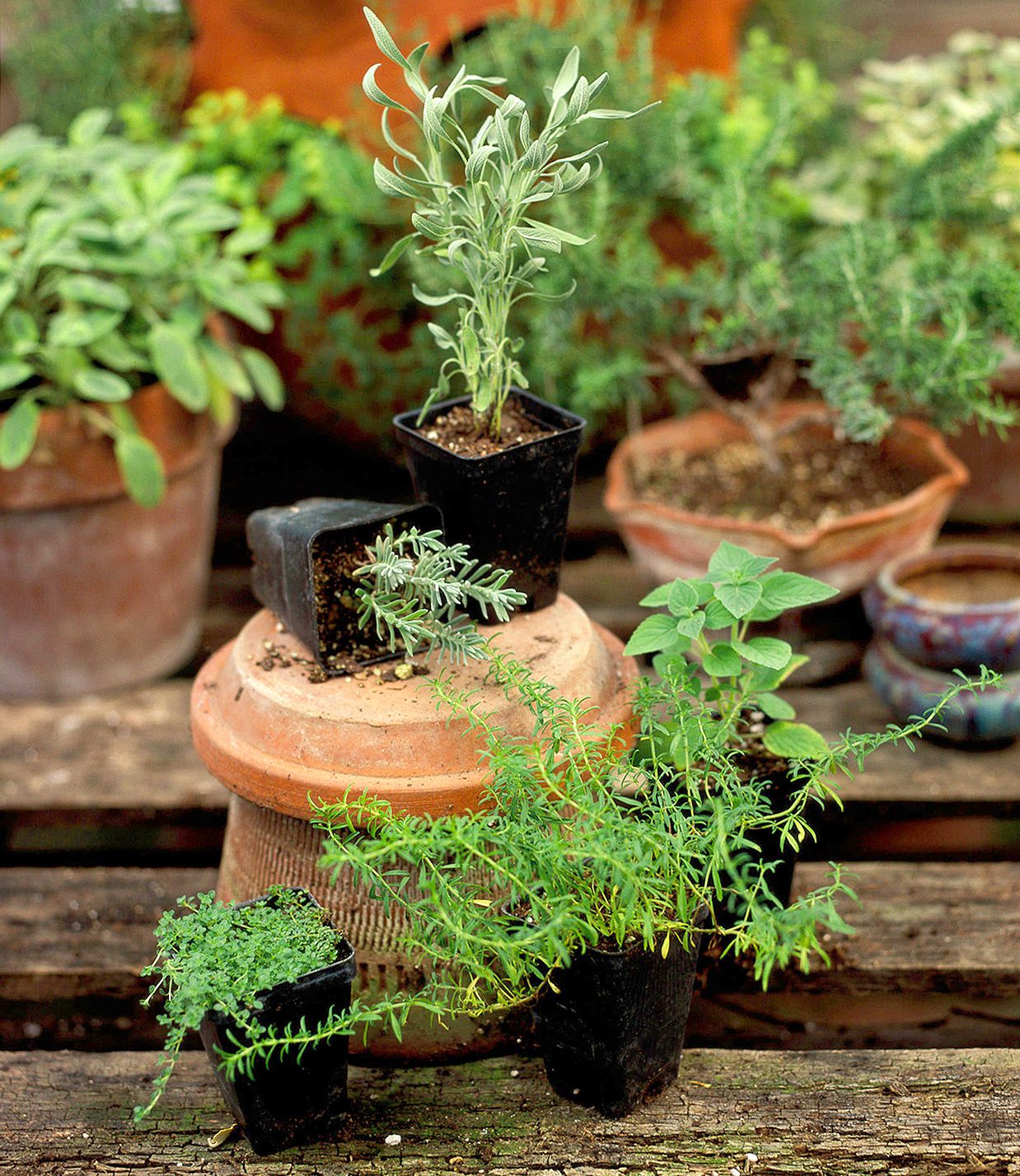 |
How to Dehydrate Herbs and Make Your Own SpicesIf you have a bumper crop of herbs and want to experiment with your own spices, this video will show you a simple way to harvest, prepare, and dehydrate herbs. |
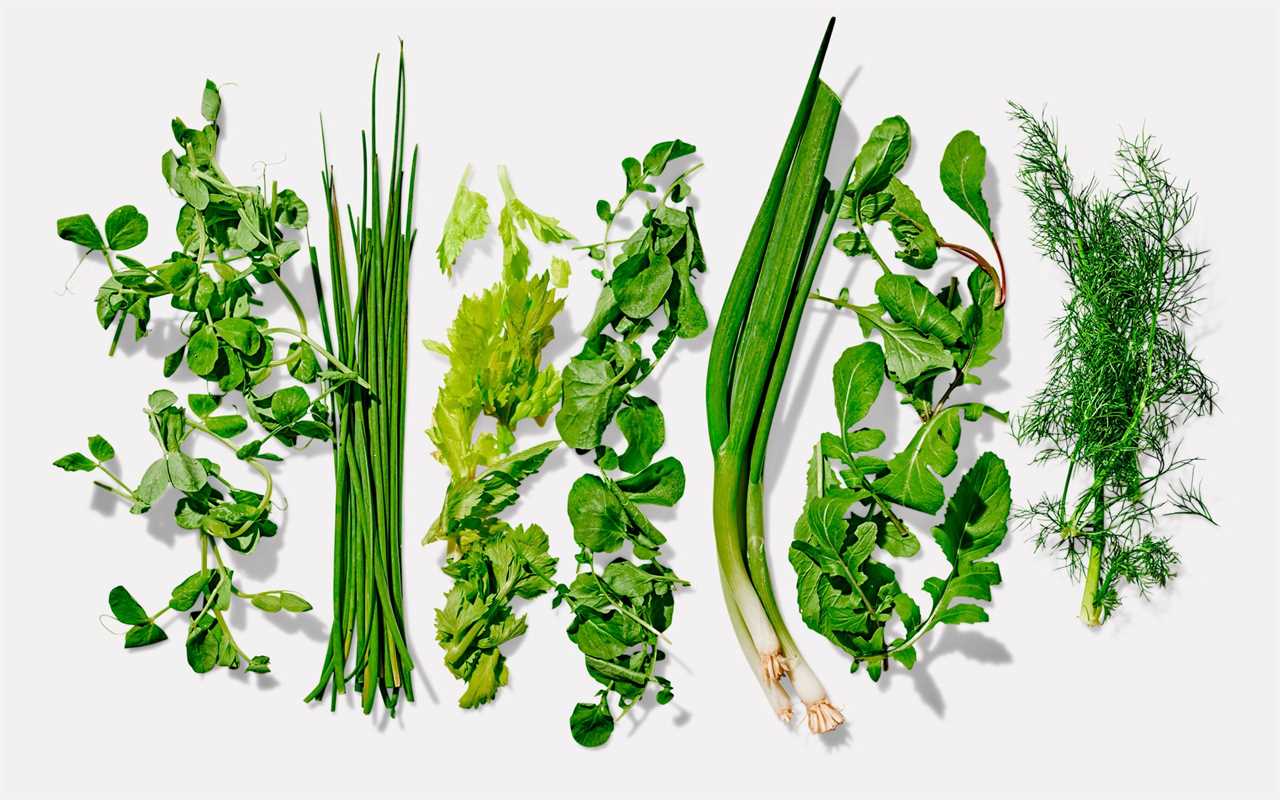 |
ARTHRITIS TREATMENT & A LOT MORE using CILANTRO / HOW TO REAP THE BENEFITS / PRECAUTIONS + MOREIn this video, we will be sharing the medicinal uses of Cilantro for treating arthritis & other health issues, some research findings on Cilantro, how you can |
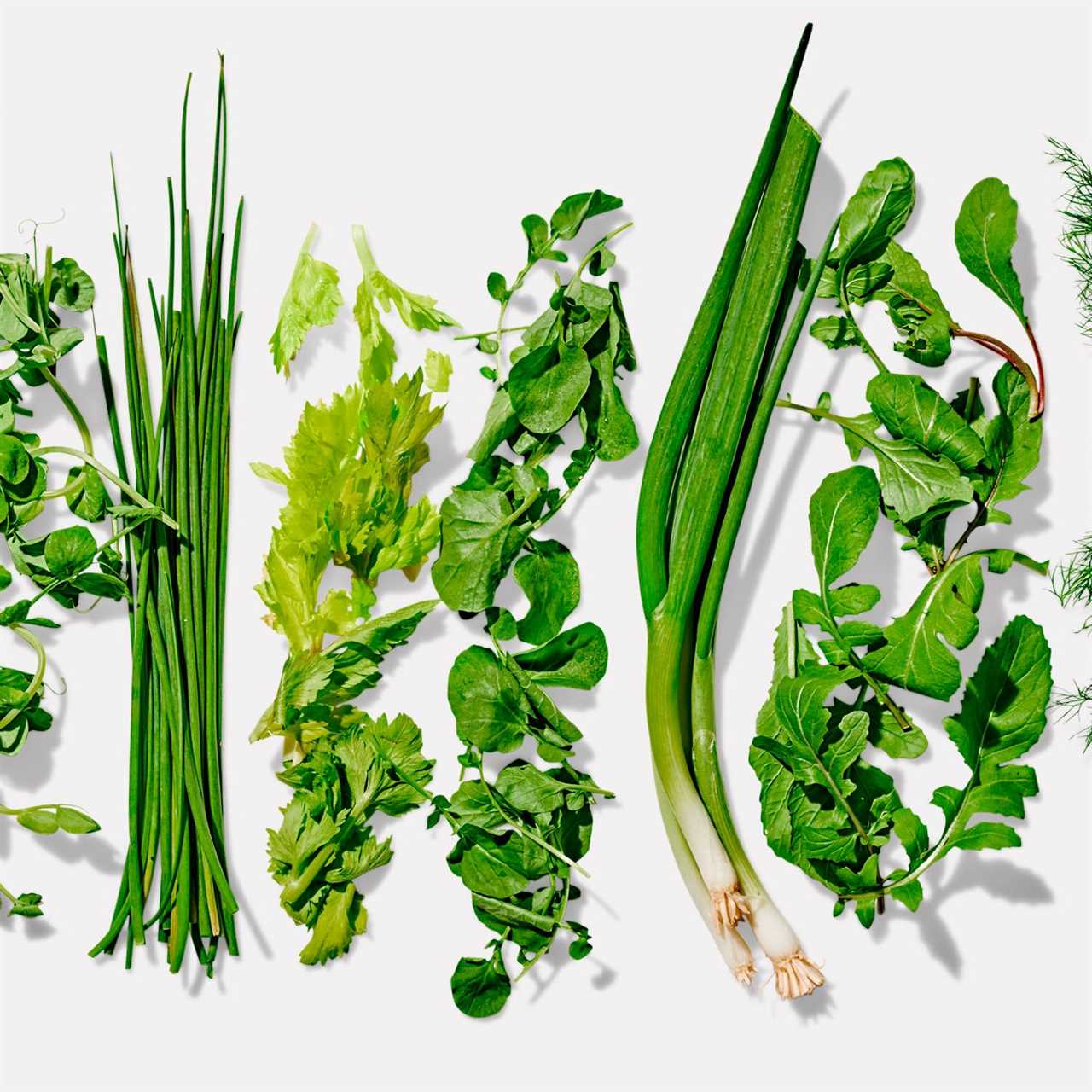 |
HERB GARDENS BEGINNERS GUIDE || HOW TO || GARDEN BASICSWebsite and Blog: www.ourlittlehouseonthemountain.com Blog Post Herb Gardens for Beginners: https://www.ourlittlehouseonthemountain.com/po […] |
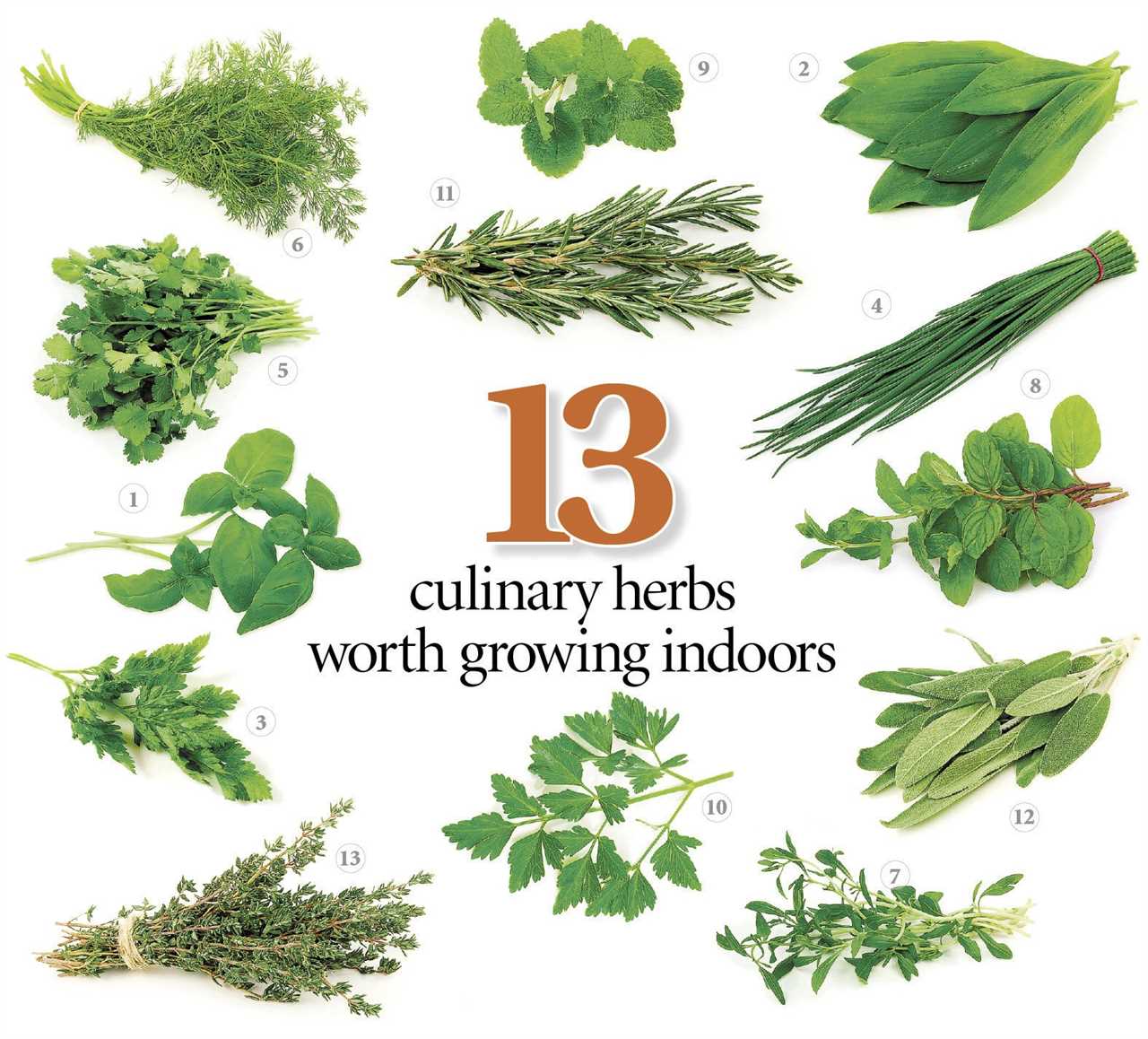 |
A Simple Herbal Apothecary Set UpTake a quick tour of my upstairs apothecary hutch. Then, we'll go over some basics that you need to get your herbal apothecary started—tools, herbs, which |
 |
The Study of Medicinal Herbs | Let''s Learn Together!What is herbalism? Why is it great to know about medicinal herbs? Where can you learn more about herbal remedies? Let's learn together! Blog Post: |
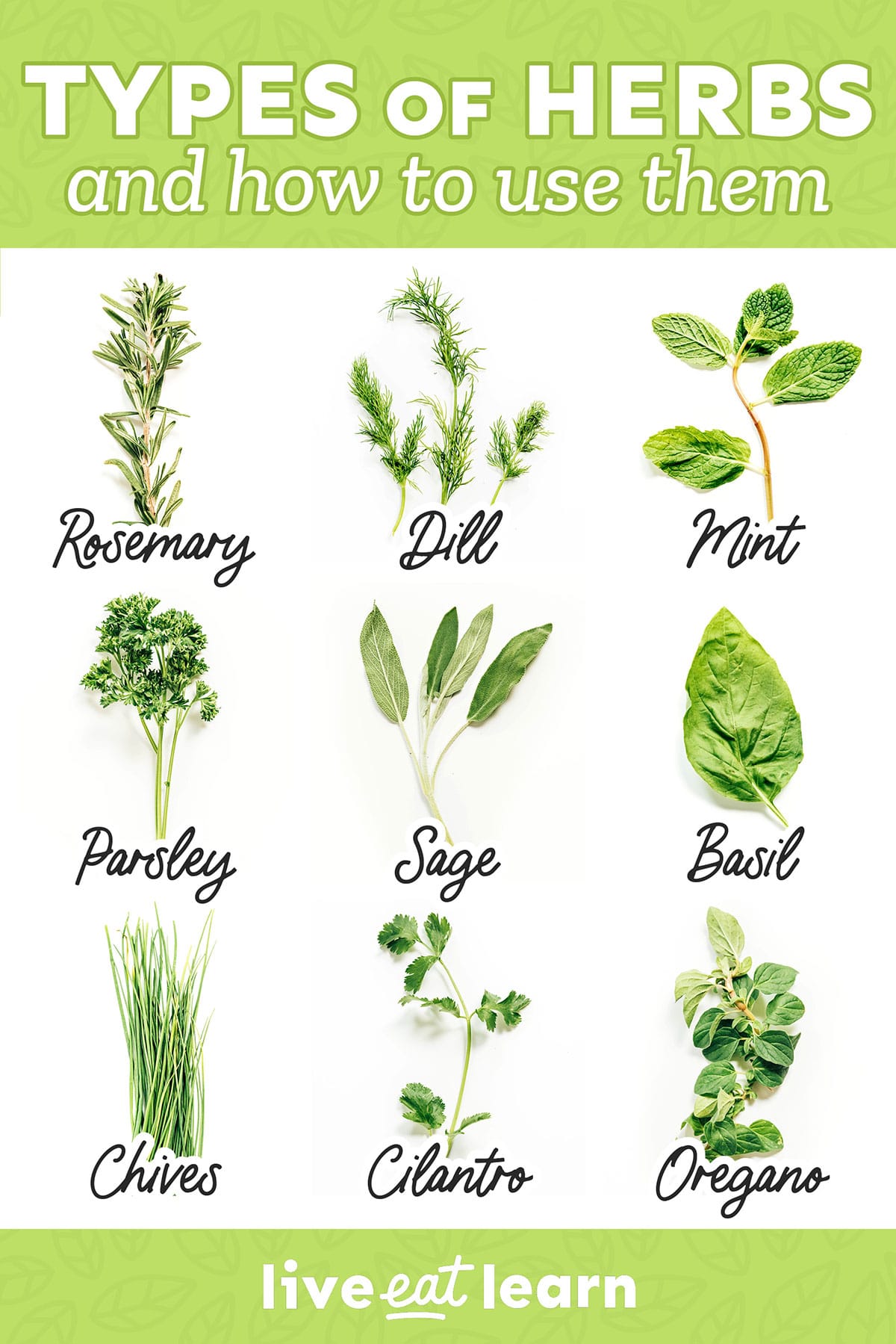 |
MEDICINAL HERBS for VIRUSES (What CHINA & INDIA Recommend During the P@NDEMIC) — Ep. 143After two family members contracted the latest virus in 2022, I became curious as to what treatments were being offered in other parts of the world—namely on |
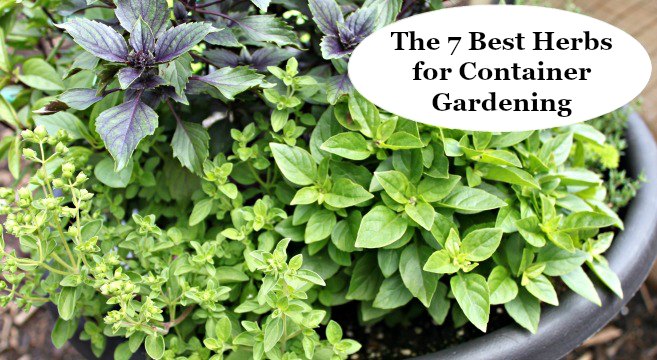 |
One of my favourite Herbs for AnxietyJoin me in exploring the benefits of a group of herbs that are commonly found in the glacial wetland of the subalpine. Pedicularis spp. In the case of this |
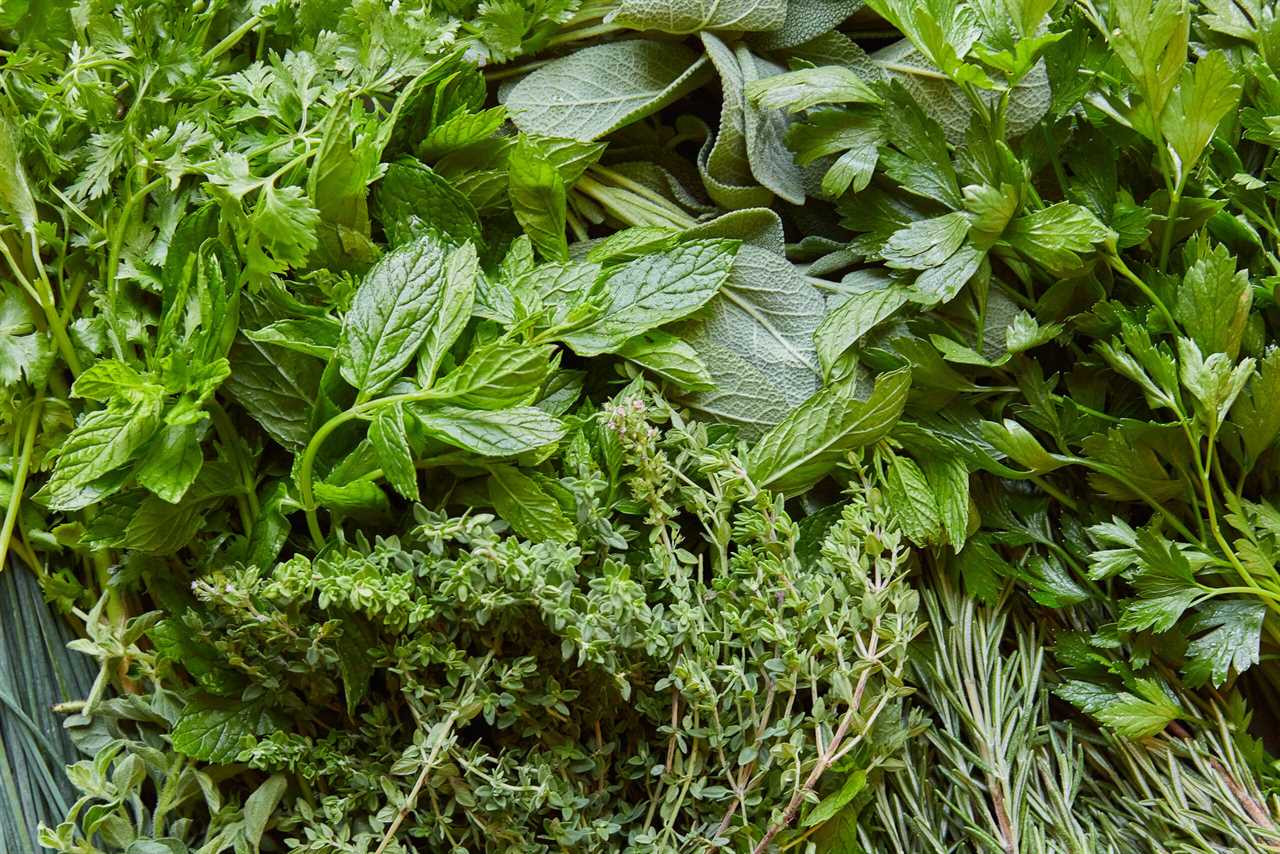 |
Barbara O''Neill - Part 11: HerbsBarbara O'Neill is an author, educator, qualified naturopath and nutritionist. In this lecture - the eleventh in a series on the body's ability to heal itself |
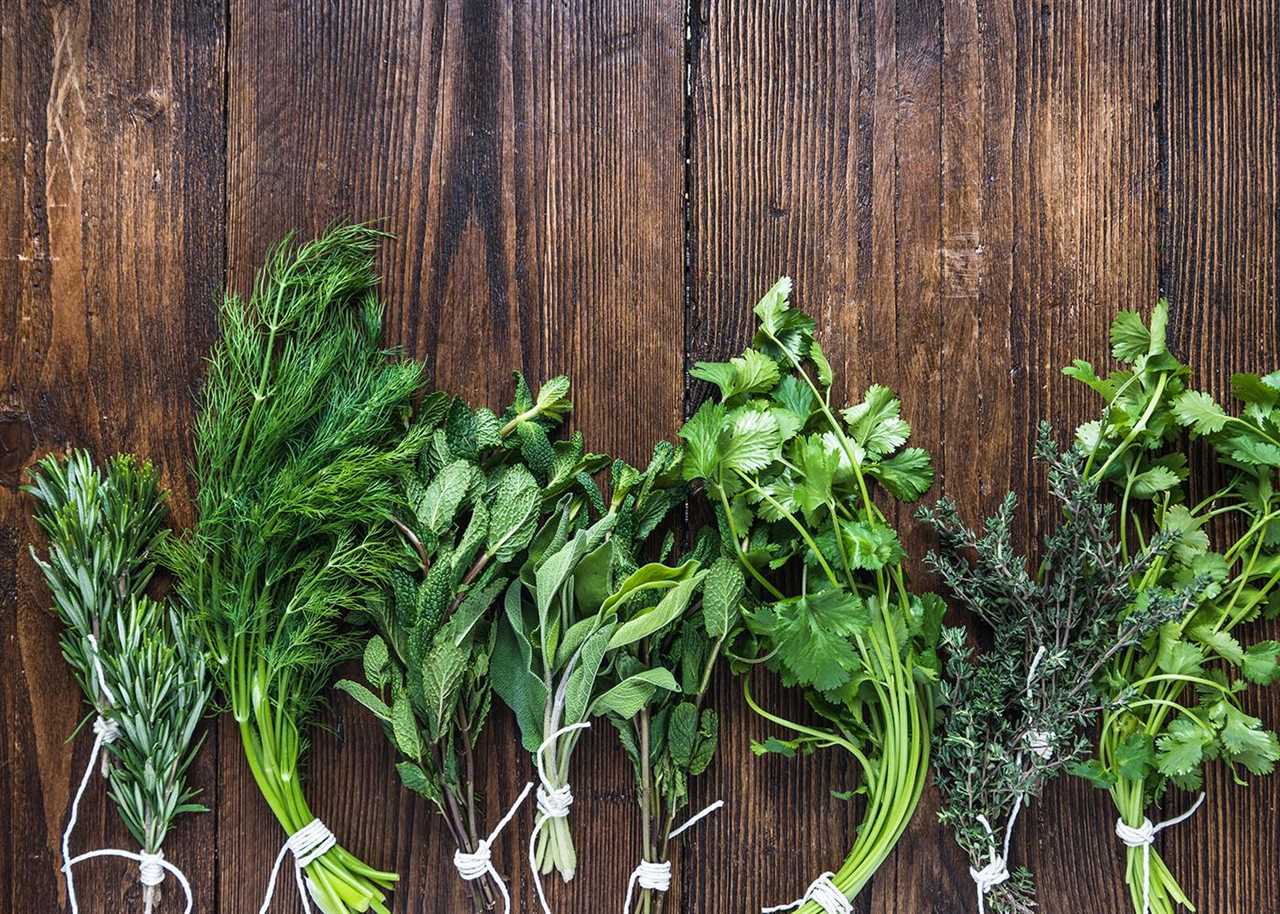 |
ASMR Herbal MASSAGE for stress RELIEF, SLEEP, Body scan, Shoulders, Bones crackingasmr massage for asmr sleep. #asmrbackmassage #asmrmassage #healingenergy INFOS ! INSTAGRAM account : https://www.instagram.com/nefertiti_asmr My |
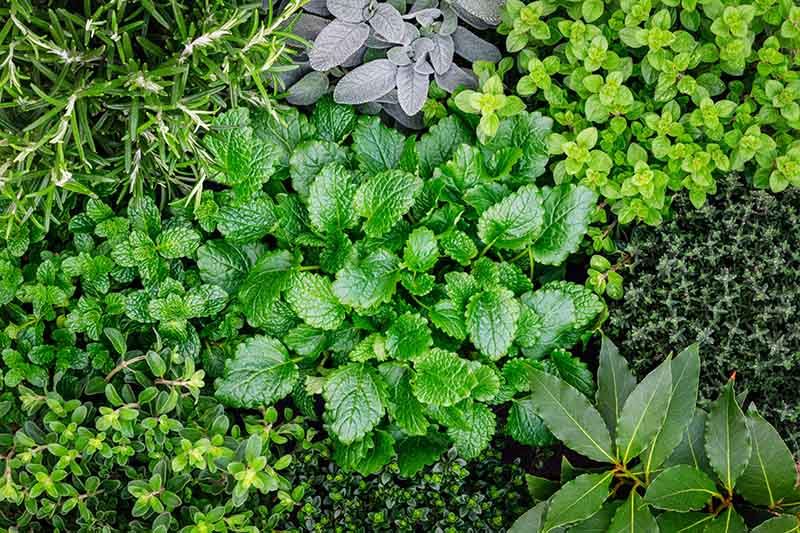 |
Prepper Pharmacy: Growing and Preserving Medicinal Herbs at HomeMedicinal plants are easy to grow and are a powerful resource for natural healing. I grow medicinal herbs in my backyard and preserve them to ensure I have |
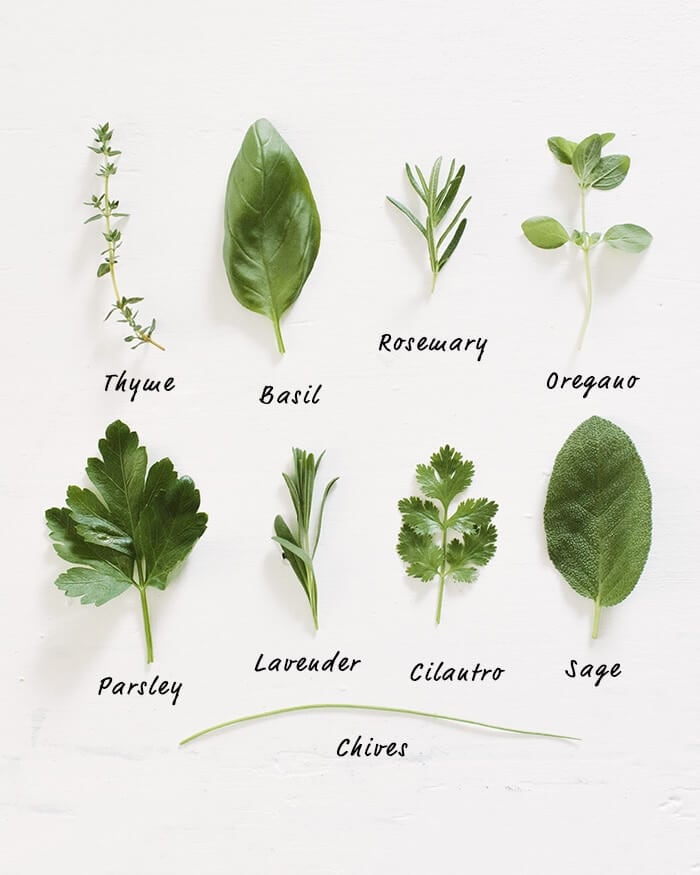 |
Tips For Dehydrating FoodsThe body reacts to dehydration by stimulating the thirst center, a powerful urge to drink fluids. However, if water intake does not match the amount.. |
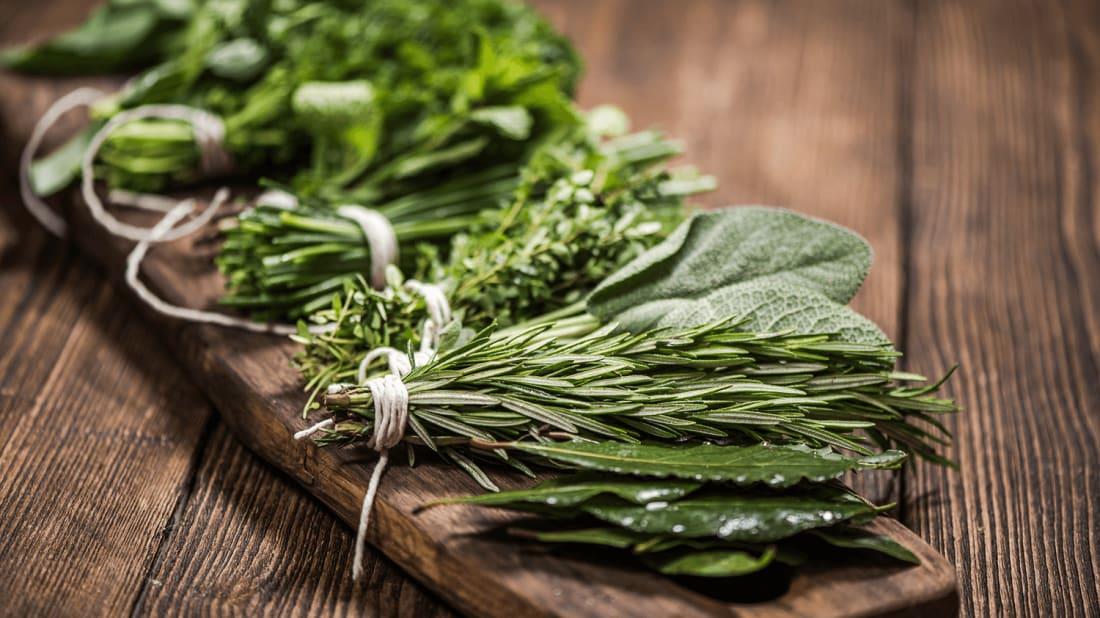 |
Join 10,000 Students Who Have Learned Herbs with Michael and Lesley Tierra - East West School of Planetary HerbologyLearn herbs from respected professional herbalists offering world-class herbalist training. The NEW Professional Herbalist Course includes courses on over 600 |
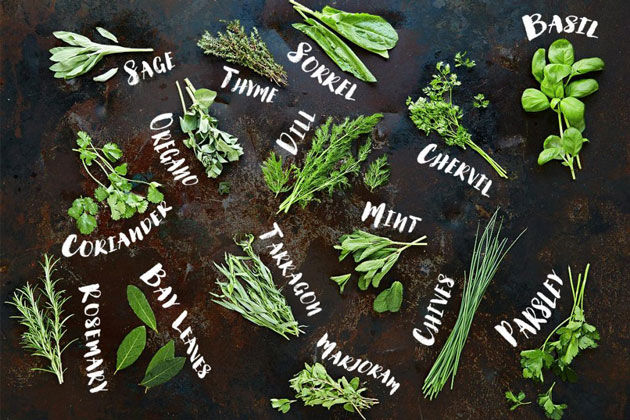 |
How to Get Your Hands on TurmericTurmeric is one of the best natural remedies available for many ailments, from arthritis to cancer. Its properties are known for its powerful.. |
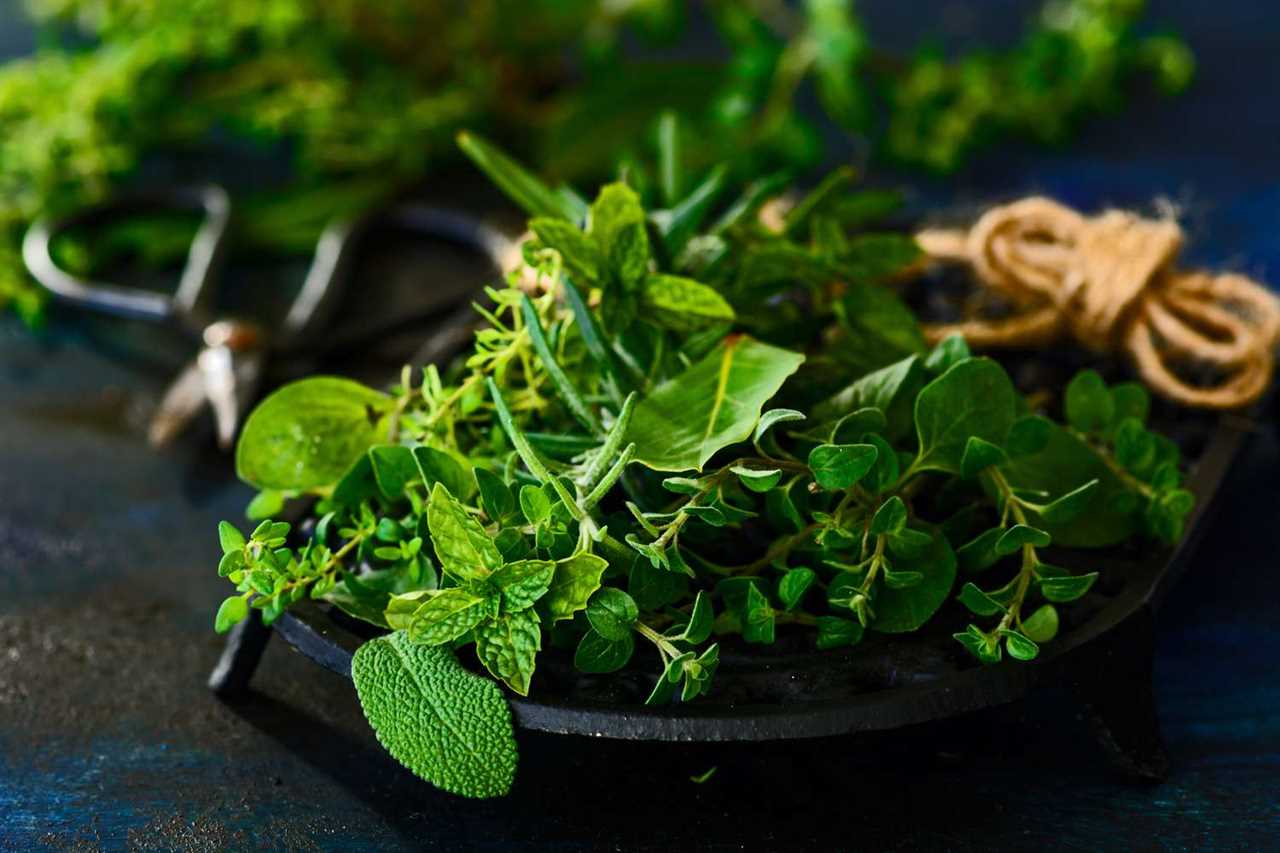 |
Slippery Elm and EssiacSlippery elm is native to eastern North America and has numerous uses, including the treatment of GERD and irritable bowel syndrome. However,.. |
 |
Health Benefits of DillDill is an annual herb in the celery family Apiaceae. It is the sole species of the genus Anethum and is widely cultivated in Eurasia. The herb is.. |
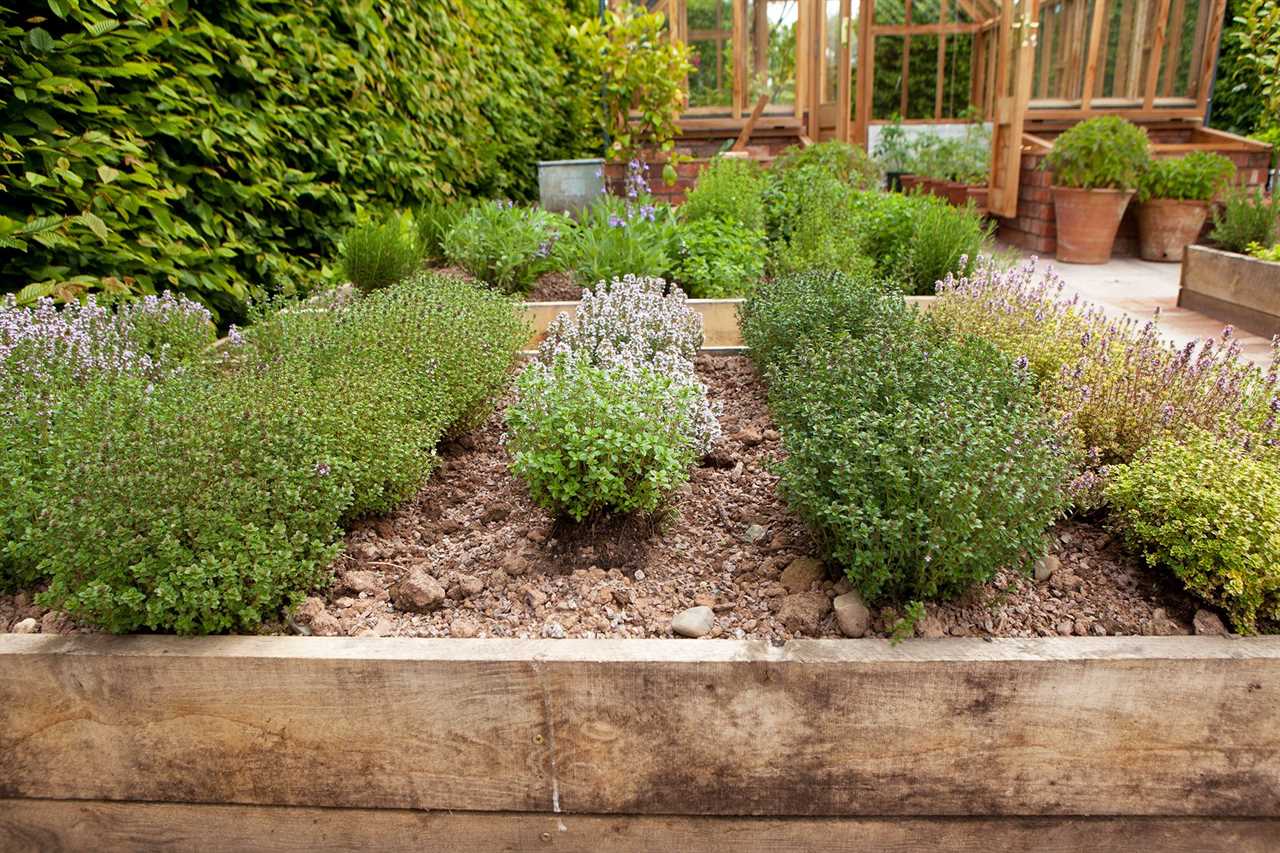 |
Licorice Root Benefits and Side EffectsLicorice is a flowering plant of the bean family, Fabaceae, and it is used as a sweetening agent. The root of Glycyrrhiza glabra is extracted for its |
 |
What Are the Benefits of Green Tea?Whether you're trying to lose weight or simply feel better, green tea is a great way to get the benefits you're looking for. It contains catechins.. |
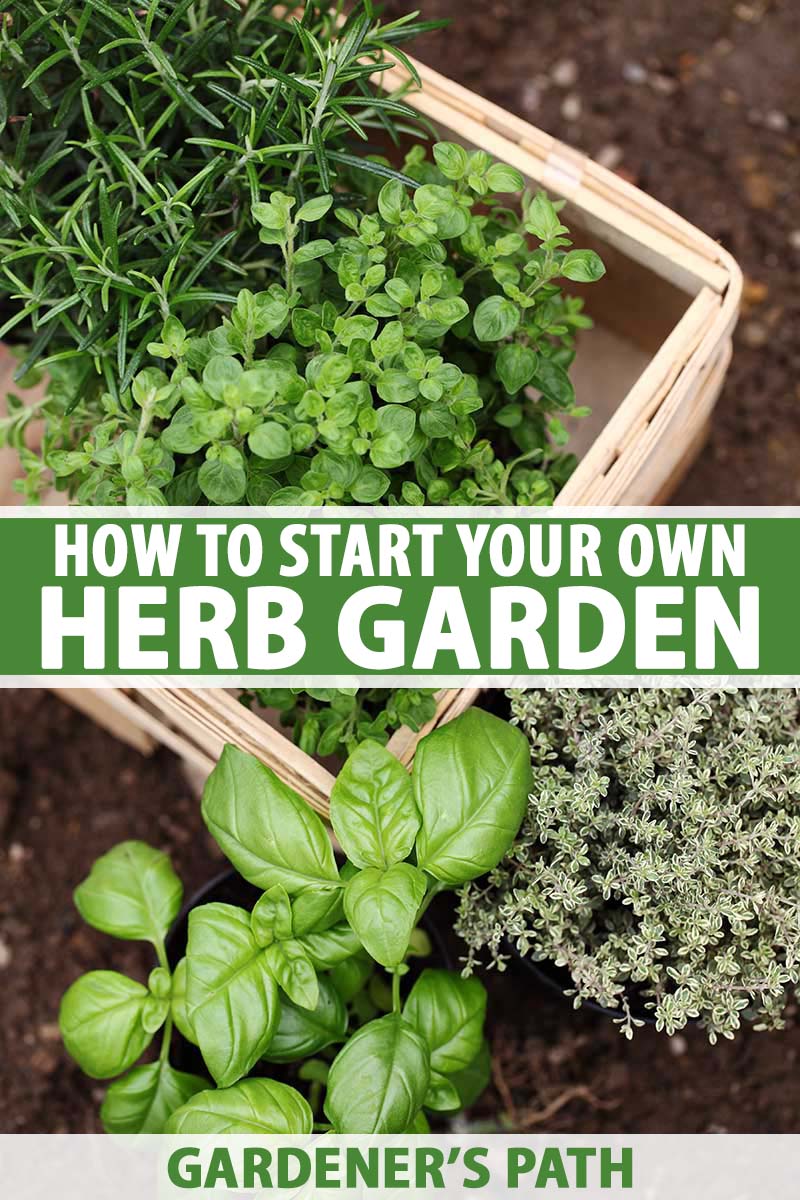 |
The Best Way to Chop Fresh HerbsTo properly chop fresh herbs, you should purchase them in a deep green color and smell fresh. You should then wash them well under running water and.. |
 |
Seasoned Baby PotatoesIf you're looking for a recipe for seasoned baby potatoes, you've come to the right place. Learn how to make seasoned potatoes with herbs and spices, |
 |
Health Benefits of Italian ParsleyBefore using Italian parsley, rinse it thoroughly under cool water. This will help remove any dirt or dust that may be attached to the leaves. Wrap.. |
 |
The Benefits of Herbal TeaHerbal teas are made from the infusion of plants and other plant materials. They are also known as herbal infusions or tisanes. Although there are.. |
 |
Herbs in Pots - How to Grow Delicious Herbs in PotsThere are many things to know when growing herbs in pots. The growing conditions, Containers, Soil amendments and watering are just a few of the.. |
 |
Choosing Annuals For Your Herb GardenIf you have ever wanted to have an herb garden, it is important to know that there are several important factors to keep in mind. Herbs require good.. |
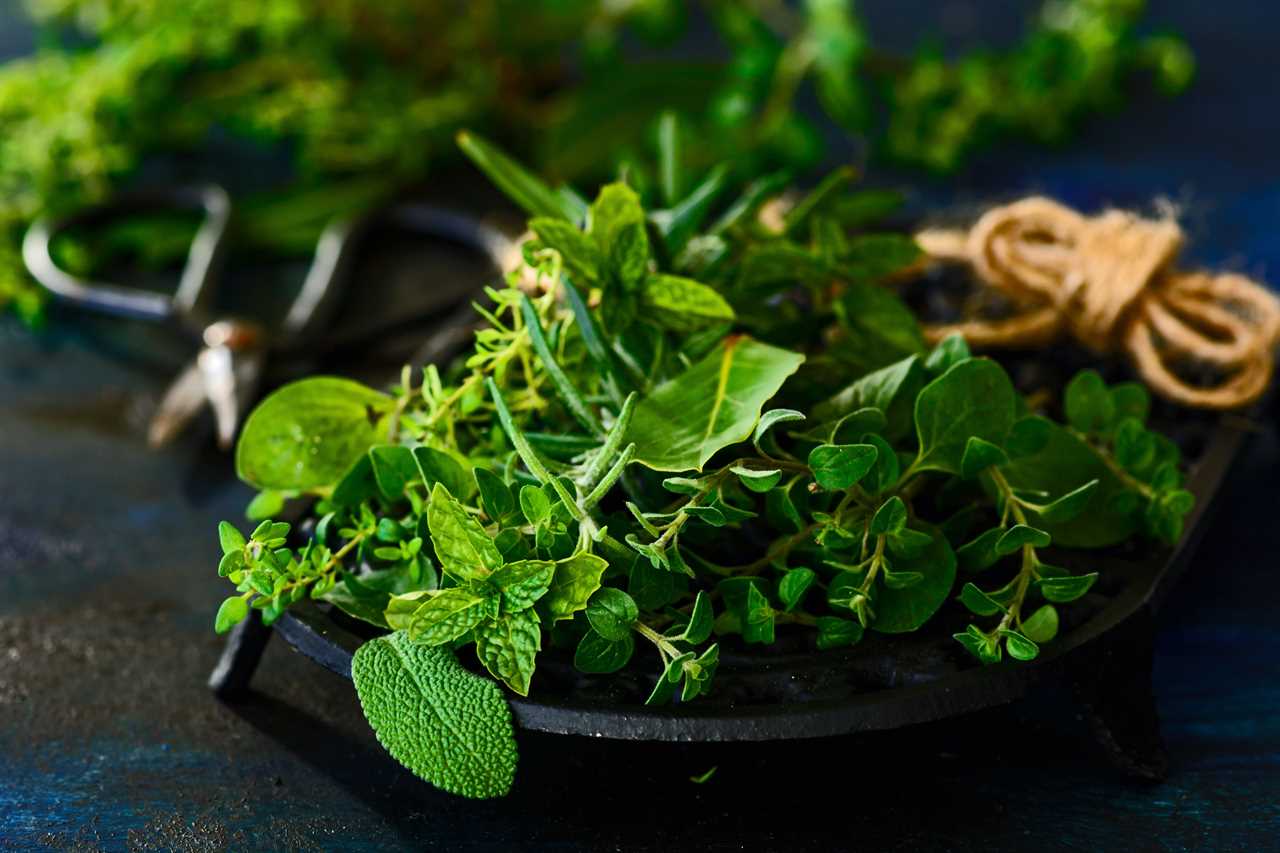 |
Home of HerbsFind out more about herbs and how to use them |
 |
The Advantages of Substituting Dried Herbs For FreshThere are many advantages to substituting dried herbs for fresh. They are cheaper, more potent, and less dusty. These are the reasons that I prefer.. |
 |
Substitute For Dried ParsleyIf you want to make a recipe without parsley, try using cilantro, dill, oregano, or sage instead. They are all delicious substitutes for dried.. |
 |
Herbs That Grow in WaterThere are several types of herbs that grow in water. These include Cilantro, Thyme, Oregano, and Lavender. Here are some tips to help you grow these.. |
 |
Perennial Herbs For Zone 4If you're in Zone 4 and are looking for perennial herbs, lemongrass and thyme are great choices. These plants thrive in cooler climates and can be.. |
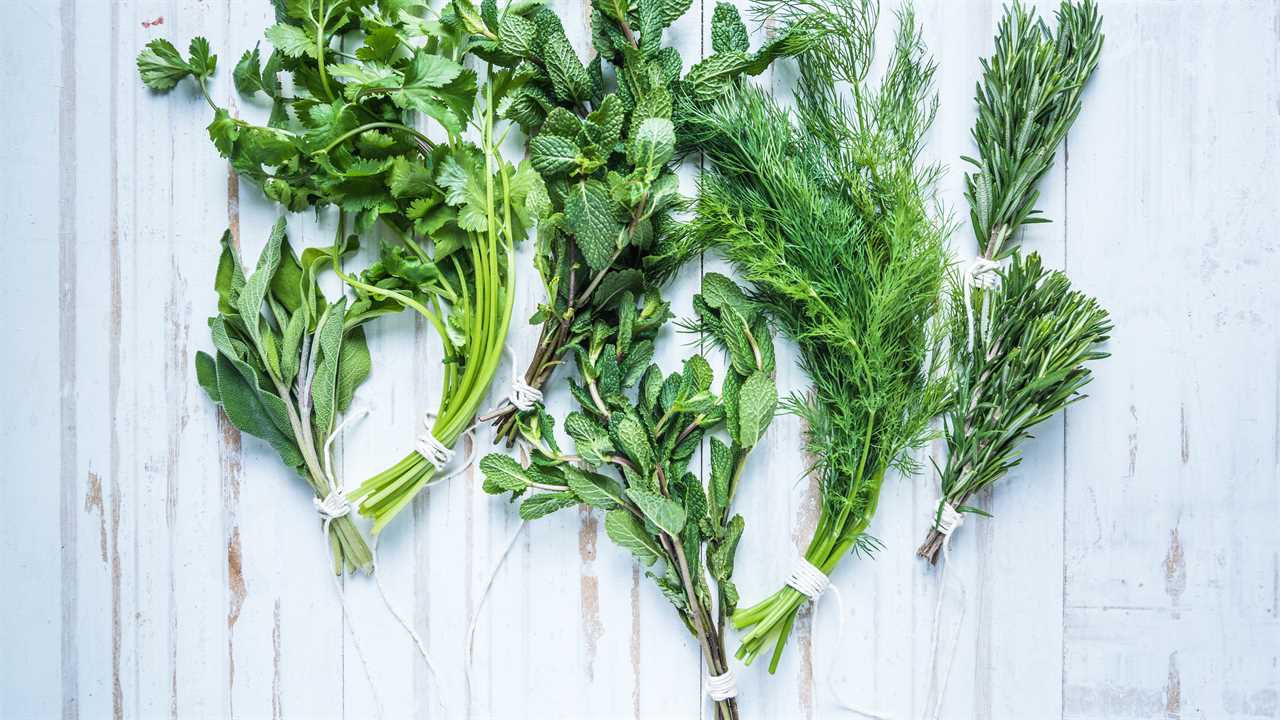 |
Tips For Growing MenthaA mint plant is a great choice for a water garden or small water feature. They have light lavender flowers, dark green leaves with purplish veining,.. |
 |
Medicine From PlantsThe use of medicine from plants has long been an essential part of traditional Chinese medicine. This ancient practice involved a wide range of plant |
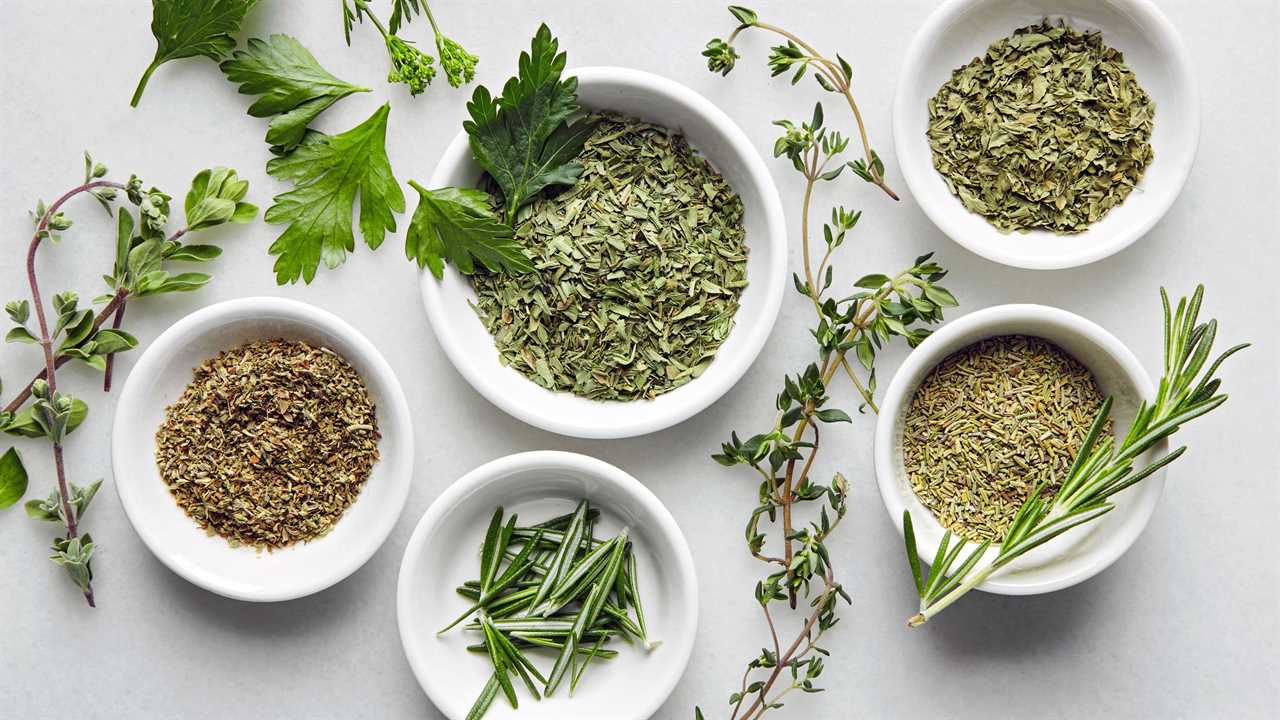 |
Ayurvedic Medicine Side EffectsAyurveda is an alternative medicine with historical roots in the Indian subcontinent. While its theory is considered pseudoscientific, it is still.. |
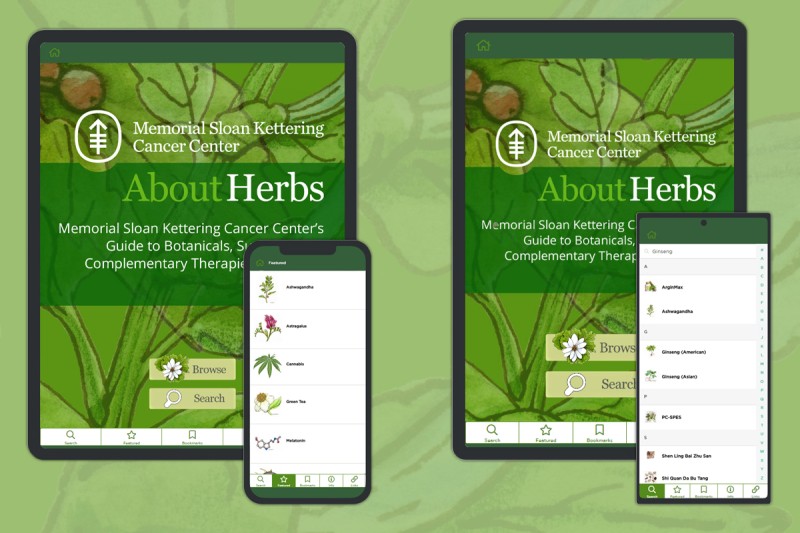 |
Growing Herbs IndoorsGrowing herbs indoors has a number of benefits, including increased yield and reduced watering. It can also be beneficial for people who are.. |
 |
6 Herbs High in MagnesiumMagnesium is an important mineral that plays an essential role in heart, brain, and musculoskeletal health. Since magnesium is required ... Read more |
 |
Citrus Bergamot vs. Red Yeast Rice: Similarities & Differences ExplainedCitrus bergamot and red yeast rice are two herbs compared to each other due largely to their potential to reduce ... Read more |
 |
Citrus Bergamot vs. Bitter Orange: Similarities & DifferencesCitrus bergamot and bitter orange are both popular herbs with health benefits for metabolism and weight loss. However, they both ... Read more |
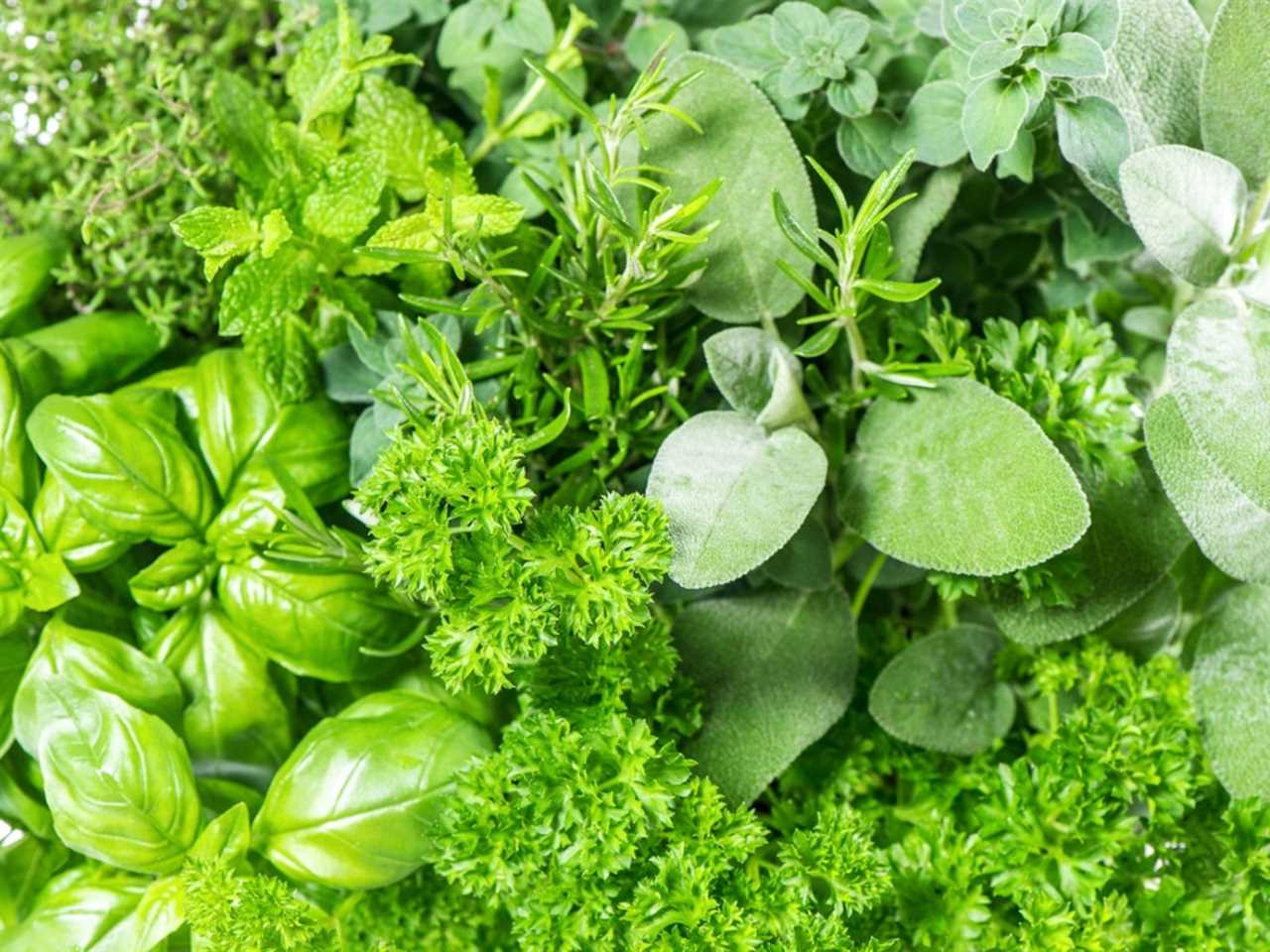 |
The Cup of LifeLike life, tea is what you make of it and The Cup of Life helps individuals enjoy tea in more than one way. Join me on my tea adventures through my blog! |
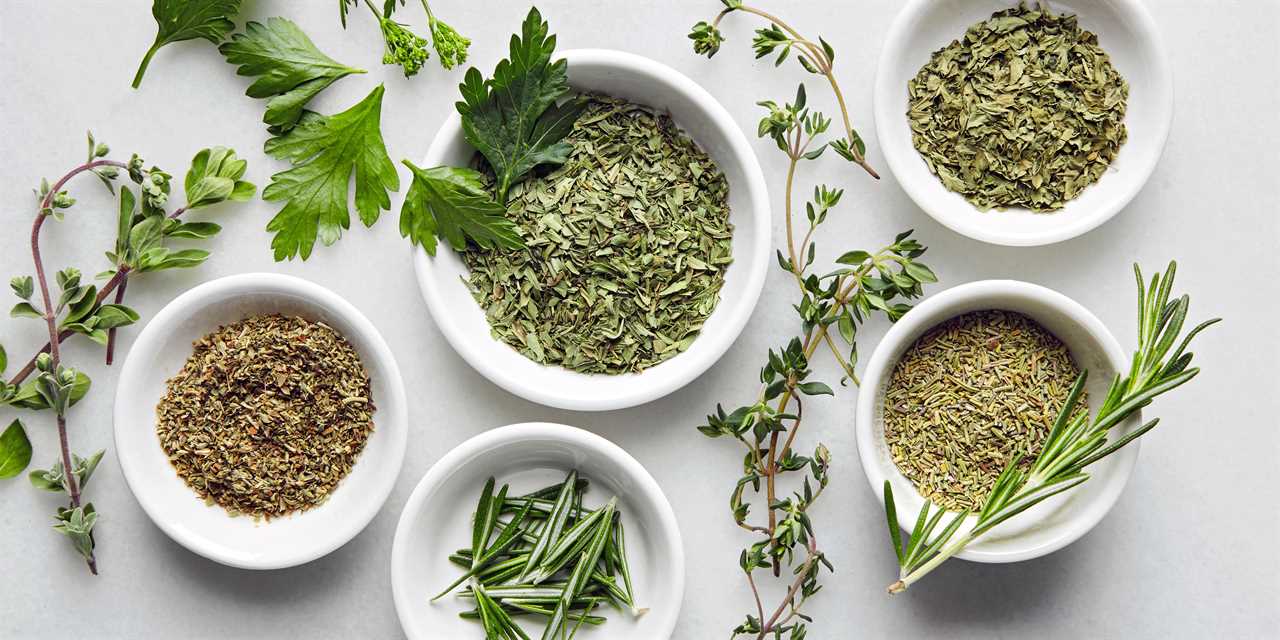 |
6 Herbs High in ZincZinc is an important trace element that contributes to immune function, tissue repair, and gene synthesis. Since zinc is involved ... Read more |
 |
5 Herbs High in PotassiumPotassium is a mineral that plays a crucial role in maintaining overall health and wellness, especially for muscle and nerve ... Read more |
 |
Feb 14, How to Use Ground Ivy with Val AlcornIt’s always exciting to hear about a little-known herb with powerful medicinal action. Join this conversation about ground ivy with Val Alcorn! |
 |
Feb 21, Benefits of Calamus Root with jim mcdonaldJoin me and my friend and herbalist jim mcdonald as we discuss the benefits of calamus root, including clearing away mental cobwebs and enhancing your focus. |
 |
Mar 1, Cottonwood BenefitsJoin me in this episode all about cottonwood and find out why it has been used as medicine and to make a variety of tools for thousansa of years! |
 |
Mar 7, The medicine of calamus root (rhizome) and leaves with Karyn SandersIt was an honor and a deep pleasure to have this informative conversation about calamus root benefits with Karyn Sanders. Join us in this new episode! |
 |
Mar 14, Dandelion with Nancy PhillipsLet's sit down and discuss dandelion with herbalist and author, Nancy Phillips |
 |
Delicious Elderberry Syrup Gummies for Cold Flu & SleepElderberry syrup is immune enhancing and protective against colds and flu. It’s one of my favorite natural remedies for avoiding or beating the flu. These flu |
 |
Helpful Plant Remedies For Anxiety And StressFeeling anxiety and stress lately? Are you feeling frustrated and wish you could just find a way to relax? Do you find that your heart is usually beating |
 |
Tomato Tea, A Natural Cold and Flu RemedyThis tea really works! You can literally feel your sinuses opening up. It’s an immune booster so even if you’re not sick drink this when others around you are |
 |
What Are Digestive Bitters And Should You Take Bitters?Bitters are a drink you sip before a meal to aid in healthy digestion. Traditional diets contained bitter foods because of their digestive action. The bitter |
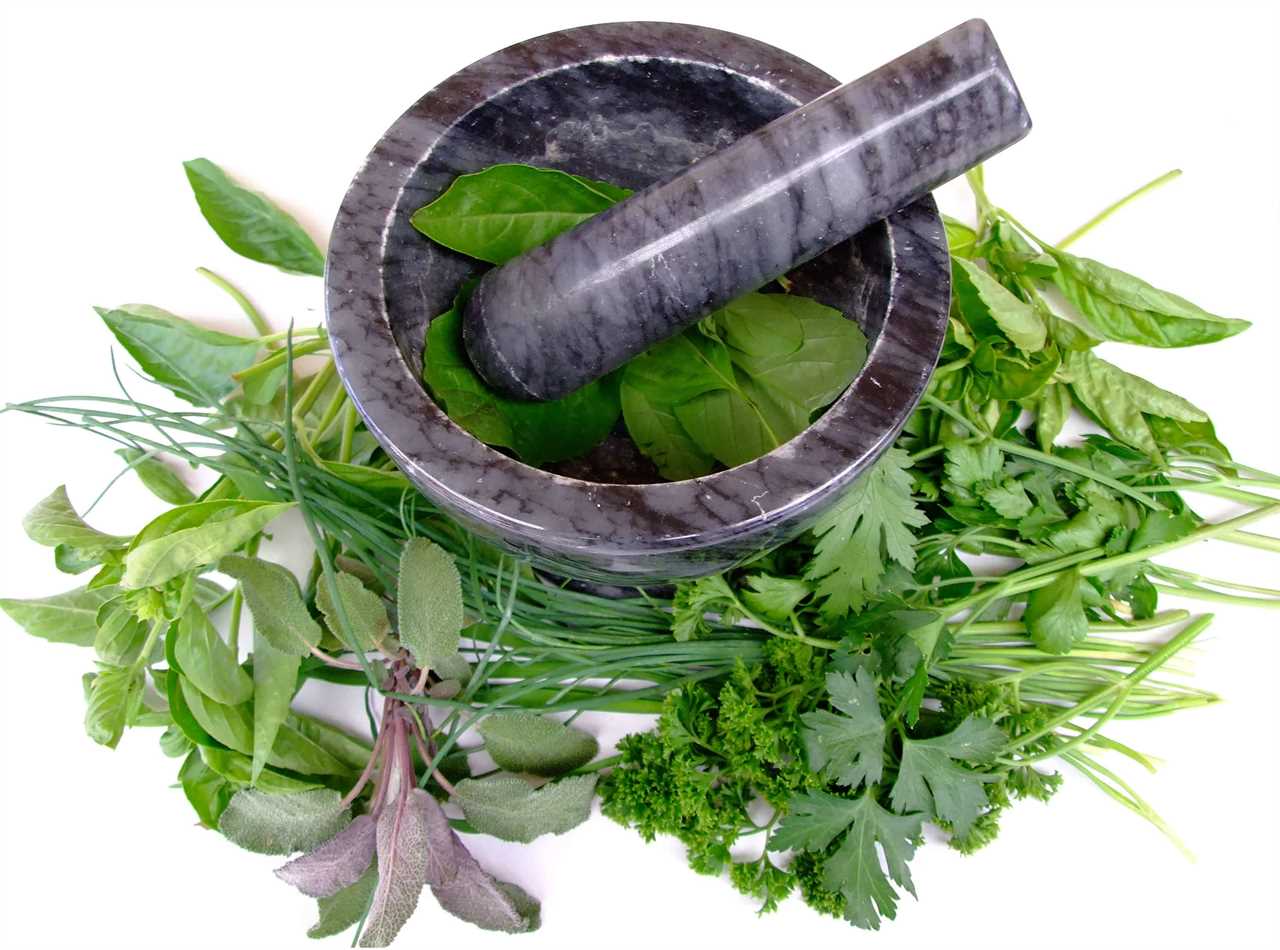 |
Tony Gebely · Tea Epicure · Taste DifferentlyA tea assessment platform that rates teas based on objective quality markers and a sensory evaluation resulting in a list of the best teas produced each year. |
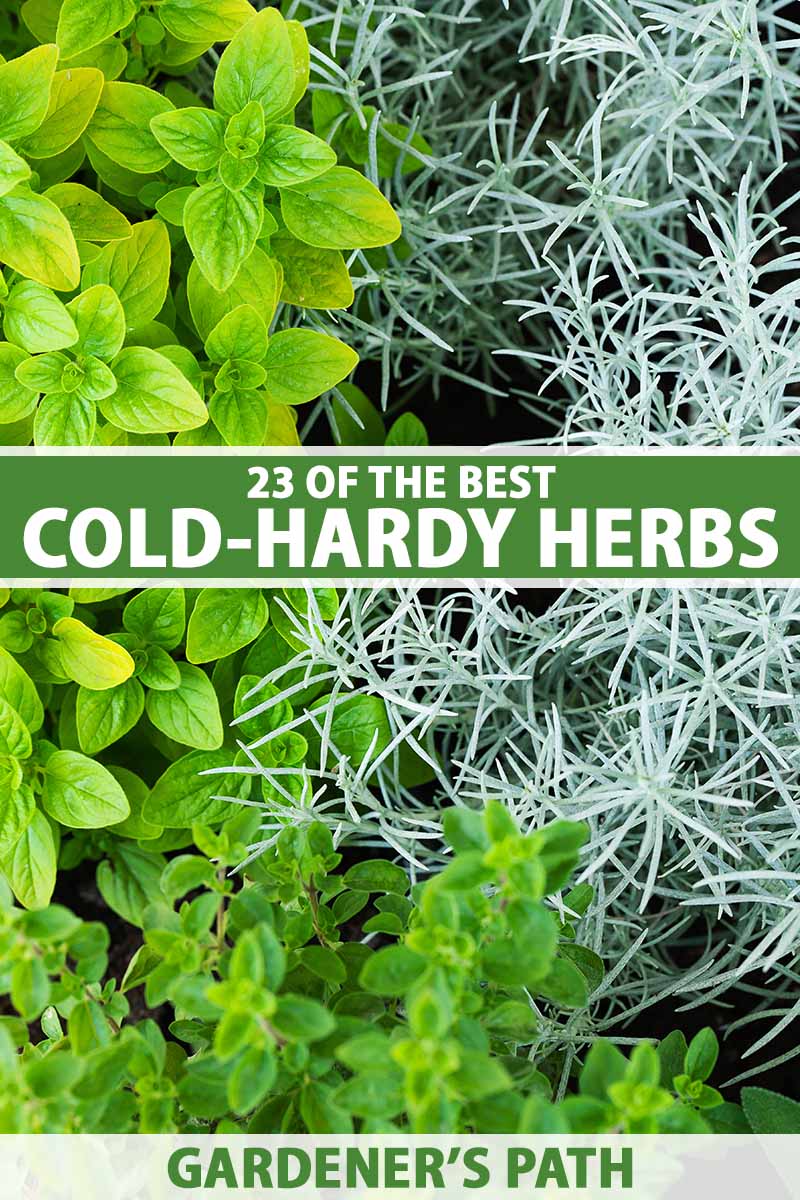 |
Motherwort Has Amazing Benefits For Your BodyMotherwort (Leonurus cardiaca) is found growing in the wild in vacant lots and gardens. It’s easy to spot as motherwort grows to a height of 5 feet and has |
.png)





